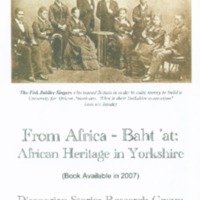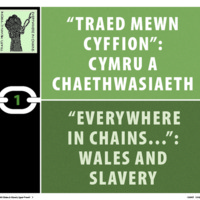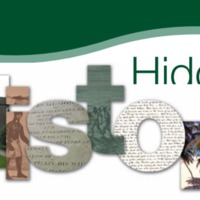
2007 Bicentenary for the Abolition of the Slave Trade Act at the National Maritime Museum
The National Maritime Museum marked the bicentenary with a range of initiatives and events including a new exhibition, a film season, poetry, music, debates, and new publications. A new permanent gallery opened at the museum in winter 2007 exploring Britain's Atlantic empire. A catalogue of slavery-related images, artefacts and documents from the collections of the museum, 'Representing Slavery', was published. The museum also devised a transatlantic slavery trail around Greenwich.
The National Maritime Museum hosted a number of events throughout 2007. The theme of the weekend 23-25 March was 'And still I rise', marked with a series of activities, performances and discussion. On August 23, International Day for the Remembrance of the Slave Trade and its Abolition, the ‘Freedom Festival: Contemporary Commemoration’ event saw a programme of creative events and performances exploring themes around the heritage of enslavement. The museum also offered a range of learning experiences based on its collections. For example, in November, a study session, 'Roots of Resistance: Abolition 1807' examined the roots of resistance and the abolition movement through talks by curators and contemporary artists. Activities for families were based on themes of freedom and carnival. 'The Big Conversation 2007' was a programme of debate and showcasing of diverse projects undertaken by students around the country, organised by the Understanding Slavery Initiative and the Department for Children, Schools and Families.

From Africa - Baht 'at: African Heritage in Yorkshire
The Diasporian Stories Research Group includes writers, historians, educators and performing artists working to uncover Black history associated with Yorkshire. To mark the bicentenary, the group published its first book 'From Africa Baht 'at', exploring links between Yorkshire and the Atlantic trading world. This included influential Black men and women who lived in or visited Yorkshire, and the shipbuilding industry of the Yorkshire coast that supplied ships for slaving voyages. The Fisk Jubilee Singers toured Britain in order to raise money to build a University for African-Americans. One of the singers settled in Yorkshire.

Everywhere in Chains: Wales and Slavery
Everywhere in Chains was an umbrella project created for the bicentenary commemorations in 2007, by a collaboration between Amgueddfa Cymru - National Museum Wales, the National Library of Wales, University of Wales, Bangor and CyMAL: Museum Archives and Libraries Wales (part of the Welsh Assembly Government). An exhibition explored Welsh involvement in slavery, especially focusing on the transatlantic slave trade and its abolition, the Black presence in Wales, and legacies of slavery. This was shown at the National Waterfront Museum in Swansea from May to November 2007 before touring to Wrexham County Borough Museum. The touring version of the exhibition was funded by the Welsh Assembly Government. The exhibition in Wrexham included discussion of the painting 'A Negro Coachboy', thought to commemorate a black servant of John Meller, owner of the Erddig estate in the 18th century.
Alongside the exhibition, the Everywhere in Chains programme also included lectures, formal learning activities and performances. An educational pack was produced by CyMAL and distributed to every school in Wales in 2009-2010. A community project created a forum in which participants from many cultural backgrounds could voice their ideas about enslavement. The Everywhere in Chains Community Heritage Toolkit captured the learning from this project. The toolkit, launched in 2009, was produced to help individuals, groups and organisations to work with culture and heritage providers to undertake projects focused on the role of Wales in the transatlantic slave trade and issues of modern slavery.

Hidden History of the Dales
This project was a collaboration between the Dales Countryside Museum in Hawes and North Yorkshire Record Office to research people and places of the Yorkshire Dales connected with Africa, the Caribbean and India. 'Hidden History' collected local stories of slave owners and traders, abolitionists, Africans and Asians who moved to the Dales, and others like the actor Ira Aldridge who passed through. The project included various community activities. Working with actor Joe Williams, pupils from the Wensleydale School explored the life of Olaudah Equiano and performed alongside Joe at the exhibition opening. There were drop-in sessions on exploring family history, carnival costume making, talks and music. The exhibition toured to other locations in Yorkshire, including Boroughbridge Library. The Dales Countryside Museum has continued to collect information relating to individuals who were connected with the Yorkshire Dales and the wider world.